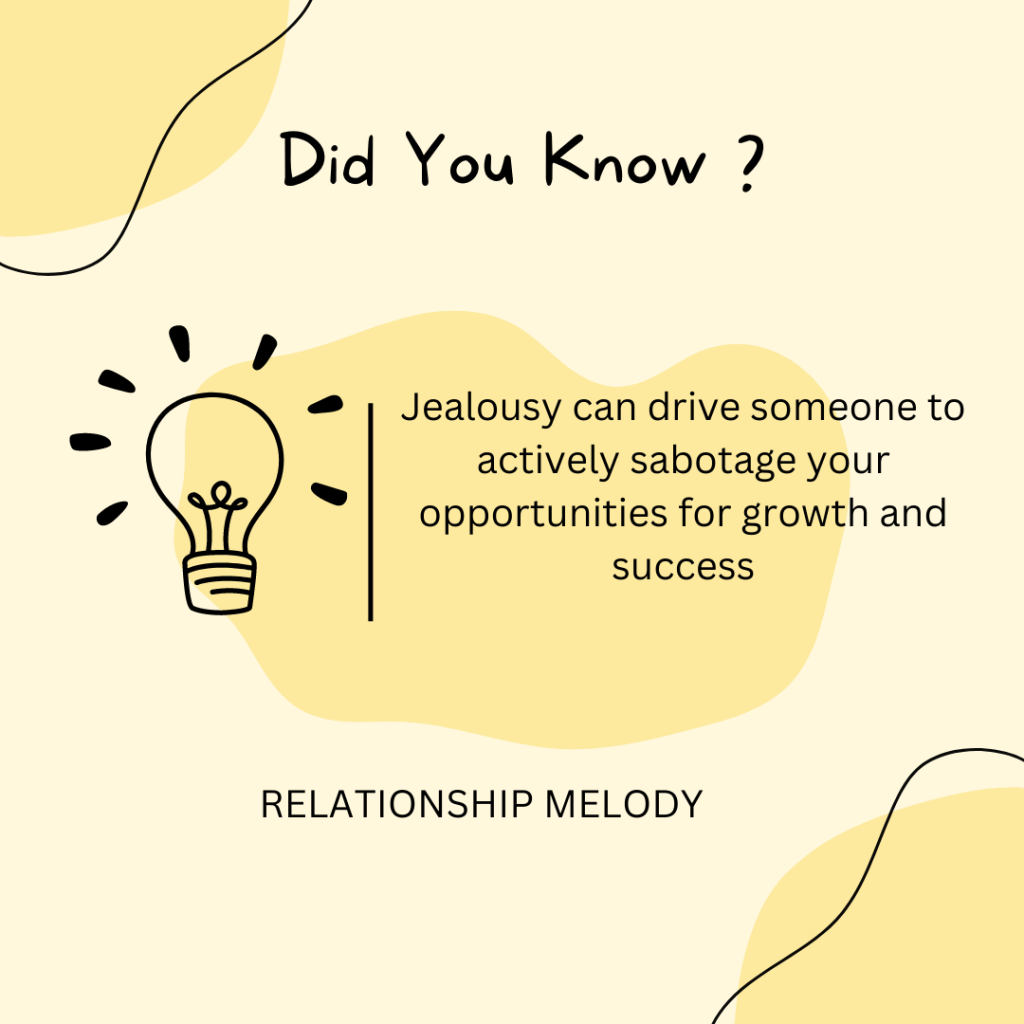25 Signs He Is Feeling Jealous
Jealousy is a complex emotion that can wreak havoc on relationships if left unchecked. Whether you’re in a romantic partnership or a close friendship, it’s important to be able to identify signs of jealousy to address them proactively.
In this blog post, we’ll explore 25 common signs that indicate a person is experiencing jealousy. By recognizing these signs, you can foster open communication, and understanding, and work towards building stronger connections.
25 Signs He Is Feeling Jealous
Here are 25 signs to know!
#1 Increased Possessiveness:
When someone is feeling jealous, they may exhibit heightened possessiveness. They might constantly seek reassurance and validation from you, wanting to assert their ownership over you and ensure that you are exclusively theirs. This behaviour can lead to feelings of suffocation and a lack of personal freedom within the relationship.
#2 Constant Monitoring:
Jealous individuals often engage in constant monitoring of your activities. They may frequently ask about your whereabouts, question your interactions with others, and demand detailed explanations. This behaviour stems from a fear of being replaced or left out, and it can create an atmosphere of mistrust and insecurity.
#3 Excessive Accusations:
Jealousy can cause someone to make baseless accusations without any evidence or logical reasoning. They may accuse you of infidelity or betrayal, even when there is no concrete basis for their suspicions. These accusations are a manifestation of their insecurities and deep-rooted fears of losing you.
#4 Comparisons:
Jealous people often compare themselves to others, feeling threatened or inferior. They may constantly measure themselves against perceived rivals, whether it be in terms of appearance, achievements, or social standing. This comparison trap can lead to feelings of inadequacy and resentment, as they struggle with their self-esteem.
#5 Overly Critical:
When someone is feeling jealous, they may become excessively critical of your accomplishments and successes. They might downplay your achievements, belittle your efforts, or find ways to undermine your confidence. This behaviour arises from their desire to elevate themselves and diminish their self-worth, attempting to regain a sense of superiority.
#6 Passive-Aggressive Behavior:
Jealousy can manifest as passive-aggressive behaviour, where the person may use indirect tactics to express their jealousy. They might give you silent treatment, make sarcastic remarks, or engage in subtle acts of sabotage. This passive-aggressive approach allows them to express their negative emotions while maintaining a façade of innocence.
#7 Excessive PDA:
Public displays of affection can be used as a means of asserting ownership and making others feel envious. A jealous person may engage in excessive PDA to mark their territory and send a message to potential rivals that you are off-limits. However, this behaviour can make others uncomfortable and may stem from their insecurities and fear of losing you.
#8 Increased Insecurity:
Jealousy is often rooted in deep-seated insecurities. When someone is feeling jealous, their self-doubt and lack of confidence can intensify. They may constantly compare themselves to others and feel threatened by any perceived competition, leading to heightened insecurity and a constant need for reassurance.

#9 Constant Need for Reassurance:
Jealous individuals often require constant reassurance of your feelings and commitment to them. They may seek validation repeatedly, asking for affirmations of love and loyalty. This continuous need for reassurance stems from their fear of being replaced or abandoned, and it can be emotionally exhausting for both parties involved.
#10 Frequent Arguments:
Jealousy can fuel unnecessary arguments and conflicts within a relationship. The jealous person may become hypersensitive to minor situations, perceiving them as potential threats or indications of betrayal. This heightened sensitivity often leads to frequent misunderstandings and heated arguments, eroding trust and creating a toxic environment.
#11 Unwarranted Jealousy Toward Others:
A jealous person may express jealousy not only towards you but also towards your friends or colleagues. They may feel threatened by the presence of others in their life, fearing that these individuals may steal their attention and affection away from them. This unwarranted jealousy can strain your relationships with others and isolate you from your support network.
#12 Undermining Relationships:
Jealousy can drive someone to undermine your connections with others. They may make derogatory comments about your friends or family members, discourage new friendships, or even intentionally sabotage your relationships. This behaviour stems from their fear of losing you to others and their desire to maintain control over your social interactions.
#13 Stalking on Social Media:
In the digital age, jealousy can manifest through stalking behaviours on social media. A jealous person may closely monitor your online activities, frequently checking your profiles, posts, and interactions. They may react negatively to any interactions you have with others, perceiving them as threats or signs of potential infidelity.
#14 Withholding Affection:
Jealousy can lead to the withholding of affection or intimacy as a form of punishment or control. The jealous person may use this tactic to make you feel guilty or to assert your dominance in the relationship. By withholding affection, they aim to create a sense of dependency and reinforce their power dynamics.
#15 Excessive Flirting:
In an attempt to provoke a reaction or assert their desirability, a jealous person may engage in excessive flirting with others in your presence. They may intentionally seek attention from others, making you feel uncomfortable and insecure. This behaviour serves as a way for them to assert their attractiveness and test their loyalty.
#16 Outbursts of Anger:
Jealousy often manifests as anger, leading to explosive outbursts over minor issues. The jealous person may become easily irritable and prone to fits of rage. These outbursts are a result of their internal turmoil, as they struggle to control their jealousy and the accompanying feelings of fear and inadequacy.
#17 Unwarranted Mistrust:
Jealousy can breed deep-seated mistrust in a relationship. Even in the absence of any evidence of infidelity or betrayal, a jealous person may constantly doubt your faithfulness. Their mistrust is fueled by their insecurities and fears, leading to a cycle of suspicion and strained trust.
#18 Overanalyzing Conversations:
When feeling jealous, a person may overanalyze every conversation you have, searching for hidden meanings or signs of potential betrayal. They may scrutinize your words, tone, and body language, looking for any signs of disloyalty or interest in others. This constant overanalysis can create tension and erode open communication within the relationship.
#19 Sabotaging Your Success:
Jealousy can drive someone to actively sabotage your opportunities for growth and success. They may undermine your achievements, discourage your aspirations, or even sabotage your work or personal endeavours. This behaviour arises from their fear of being overshadowed or left behind, as they struggle with their feelings of inadequacy.
#20 Alienation from Friends:
A jealous person may attempt to alienate you from your friends or discourage new friendships. They may express disapproval of your social circle, question the intentions of your friends, or create conflicts between you and your loved ones. This isolating behaviour aims to ensure that they are the primary source of your support and attention.
#21 Excessive Checking of Phone or Personal Belongings:
Jealousy can lead to invading your privacy by frequently checking your phone, personal belongings, or online accounts without your permission. They may seek out any evidence of potential betrayal, disregarding your right to privacy and trust. This behaviour is driven by their overwhelming fear of being deceived.
#22 Excessive Compliments:
In an attempt to mask their jealousy, a person may offer excessive compliments to others in your presence. They may shower others with praise and admiration, highlighting their positive qualities to evoke a reaction from you. This behaviour is a subtle way of expressing their jealousy and attempting to regain your attention and validation.
#23 Unfounded Distrust of Others:
A jealous person may exhibit unfounded distrust towards your friends, family members, or colleagues. They may question the motives and intentions of these individuals, assuming that they pose a threat to your relationship. This unwarranted distrust further isolates the jealous person and reinforces their negative mindset.
#24 Extreme Mood Swings:
Jealousy can cause extreme mood swings in a person. They may oscillate between periods of intense affection and moments of cold detachment. These mood swings are a result of their internal struggle with jealousy, as their emotions fluctuate between fear, insecurity, and possessiveness.
#25 Emotional Withdrawal:
When consumed by jealousy, a person may emotionally withdraw from the relationship. They may distance themselves, become emotionally unavailable, or create a barrier between you and them. This withdrawal serves as a defence mechanism to protect themselves from the pain and vulnerability associated with their jealousy.
Read More: Signs he is done with the relationship
Conclusion:
Recognizing the signs of jealousy is essential for fostering healthy and trusting relationships. By understanding these signs, both individuals can address the underlying issues and work towards building a foundation of trust, open communication, and mutual support.
It is crucial to approach jealousy with empathy and compassion, promoting self-reflection and growth to overcome its detrimental effects. Remember, addressing jealousy requires honest conversations, setting healthy boundaries, and nurturing a relationship based on trust, understanding, and respect.
Liked Our Article? Feel Free To Support Us
Our Patreon link: https://www.patreon.com/RelationshipMelody

Welcome to Relationship Melody! Our website is dedicated to all things on relationships, dating, and love! We are passionate about helping you navigate the ups and downs of love, and our goal is to provide you with valuable insights and information that will make your journey toward a fulfilling relationship smoother and more enjoyable.







